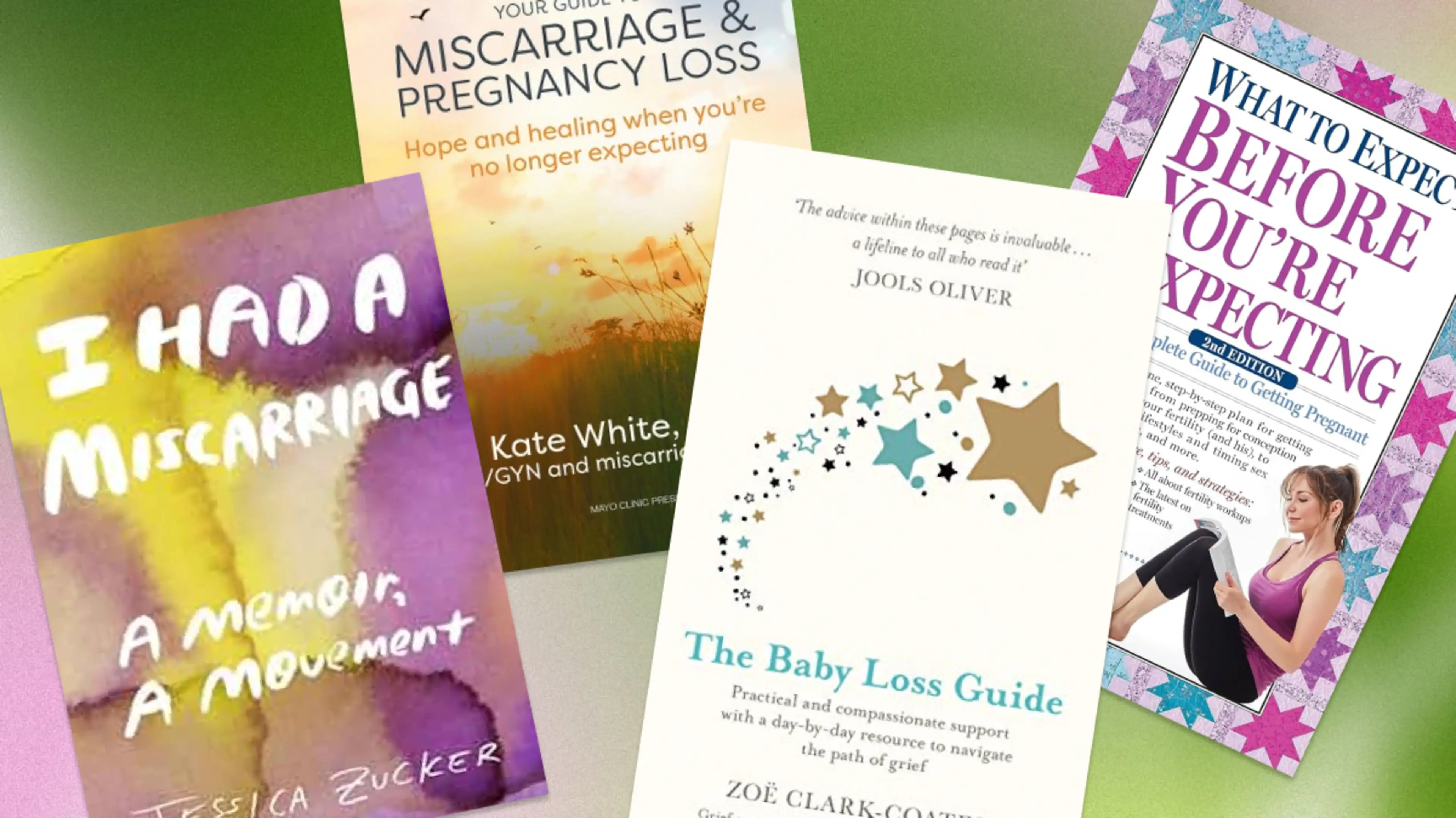When I experienced a miscarriage after our first embryo transfer via IVF, my first move was to turn to Google to answer my unending questions.
As I have previously written about, we experienced a week of limbo after my miscarriage symptoms began. The doctors initially found the gestational sac and a heartbeat, but an ultrasound confirmed a few days later that the pregnancy was no longer viable. After I received the news that I was experiencing a miscarriage, I was desperate for resources to help me not feel so alone.
I turned to the Internet, which left me with a jumble of conflicting information and more unanswered questions circling around in an endless loop in my head. How long will the bleeding last? Is it supposed to hurt this much? How should I manage my miscarriage? What should I ask my doctor? Will we know what went wrong? Why did I have a miscarriage with a normal PGT-tested embryo? How soon can we start our next embryo transfer cycle?
My experience was complicated by the fact that I was diagnosed with unexplained infertility. After going through an egg retrieval and IVF—plus all the hormone injections involved in those treatments—having a miscarriage was taking a toll on me emotionally and physically. I needed factual information, and also a framework for understanding what I was going through. I was overwhelmed by grief and sadness, and as my miscarriage treatment dragged on, I had to deal with all those emotions while trying to get back into the flow of work after maxing out my sick days.
So, as an avid reader, I naturally turned to books.
The books that follow are some of the ones that got me through those early days. Some were written by experts who could provide me with actual facts. Others provided me with solace through the personal accounts of women who had been where I was. Clark-Coates’s book helped me realize that it was still okay for me to grieve and be deeply affected by my loss, no matter the gestation or stage of the pregnancy.
Whether you read these books cover-to-cover or dip in and out to find the support and information you’re looking for, I hope they provide you with the same resources and comfort that they did for me.
Your Guide to Miscarriage and Pregnancy Loss: Hope and Healing When You’re No Longer Expecting by Kate White, MD
Written by an ob-gyn and miscarriage survivor, this book is a comprehensive guide to miscarriage from the scientific, medical, emotional, and mental perspectives. I recommend this as the first book to read to help you understand what is happening in your body and what treatment decisions you will need to make. The “Questions to Ask Your Doctor” boxes are especially useful since it can be difficult to think of and remember questions in the moment.
The book also includes chapters on third-trimester pregnancy loss, recurrent pregnancy loss, ectopic pregnancies, termination for maternal health reasons, and termination for fetal health reasons. Even if you’re not currently in the weeds of experiencing a miscarriage, this book can answer questions you may not realize you have if you previously experienced a miscarriage, and it gives useful advice for managing grief. This is also a good book for friends or family members who want to support you to read as it covers so many situations and provides really concrete information.
I Had a Miscarriage: A Memoir, A Movement by Jessica Zucker
This memoir by Jessica Zucker, a psychologist who experienced a miscarriage at sixteen weeks, is very powerful. It was born out of the social media movement, #IHadaMiscarriage, that Zucker started to expunge the shame some women feel surrounding pregnancy loss and to bring this collective experience into the light.
Zucker captures the realities of a miscarriage and its aftermath perfectly—describing the unimaginable experience of miscarrying alone at home and then having an unmedicated D&C. With every chapter I read, I kept thinking, “This is exactly right.”
She also covers how she navigated the world after her loss, how she interacted with her partner, and what she was looking for in terms of support and acknowledgment from friends and others. In one example, Zucker shares how writing an email to friends and family explaining what happened felt like an “invitation” for them to understand her new reality, and she outlines the dos and don’ts of what to say to someone experiencing pregnancy loss. In this book, Zucker not only tells her own story, but she also shares her experience as a psychologist specializing in reproductive and maternal mental health working with other women who have been through miscarriage and pregnancy loss.
The Baby Loss Guide: Practical and Compassionate Support with a Day-By-Day Resource to Navigate the Path of Grief by Zoe Clark-Coates
Zoe Clark-Coates is a British grief expert and the author of several books on grief. I found Clarke-Coates Instagram account @zoeadelle extremely helpful in the days after my miscarriage. The quotes from her books made me feel that no matter the stage, my miscarriage mattered. This idea especially helped me after experiencing chemical pregnancies. Her next book, Pregnancy After Loss, also helped me to manage my anxiety and get through the uncertainty, pain, and joy week-by-week when I was pregnant with my rainbow baby.
Clark-Coates is also the founder of the charity The Mariposa Trust and holds remembrance services for people who have lost a child at any stage of pregnancy, birth, or infancy, and she successfully campaigned for Certificates of Loss to be available to those who experienced pregnancy loss before 24 weeks of gestation in the UK, past or present.
What to Expect Before You’re Expecting, 2nd edition: The Complete Guide to Getting Pregnant by Heidi Murkoff
Everyone is familiar with Murkoff’s pregnancy bible, What to Expect When You’re Expecting, but her follow-up, What to Expect Before You’re Expecting is a little less well-known. I purchased this edition when we started IVF hoping that the book would help me be as healthy and prepared as possible through my TTC journey. But after my miscarriage, I found her section on loss to be invaluable.
Like her other books, Murkoff answers frequently asked questions about things like repeat miscarriage, reducing risk, and trying again. I also loved the boxes for dads-to-be. This book is an especially good option if you don’t want one that’s entirely focused on pregnancy loss.
While these 4 books were the ones that helped me when I was experiencing pregnancy loss, my biggest recommendation is to find the books that answer your questions, make you feel supported, and help you navigate your grief. Sometimes you can get that through the infertility and loss community on social media, which can also be a great resource. But I found it useful to turn to trusted sources to reinforce my knowledge of what I was experiencing. I also eventually decided to unplug from social media for a little bit after coming across pregnancy announcements became a trigger for me. These books stepped into that gap to provide me with the information and solace that I needed.
Like me, I hope that these books will help you to make the decisions you need to make, process your experience, heal, and not feel so alone.
Read Next: How My Miscarriage Felt Straight Out of an Old-Fashioned TV Show

